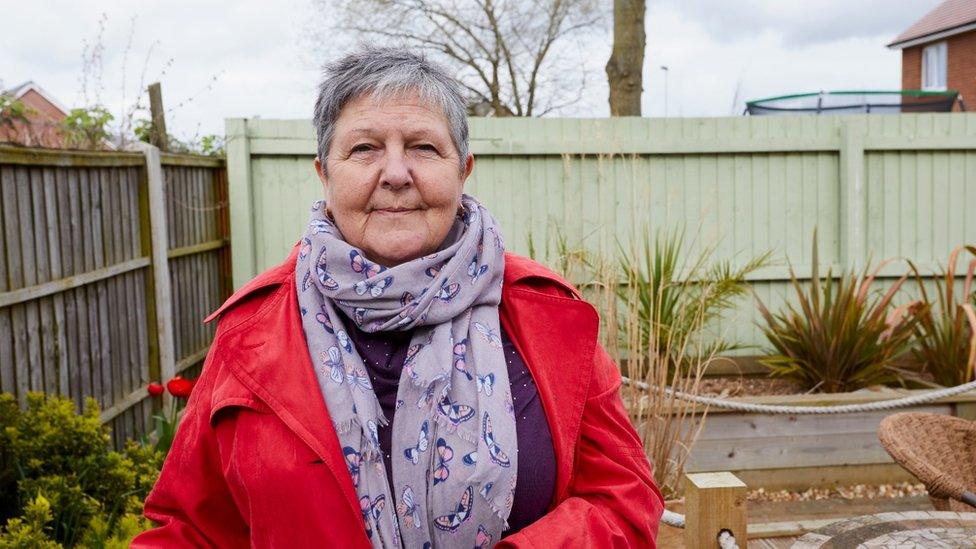Coronavirus: Family visit plea over dementia patients
- Published
Kate talks about the frustration of not knowing when she will be allowed to visit her mother who has Alzheimer's
Patients with dementia, difficulty understanding English or other communication problems should be allowed a family member with them while in hospital, it has been argued.
Visiting is currently suspended across Wales due to the coronavirus restrictions.
Now calls are being made by the Welsh Liberal Democrats and Alzheimer's Society for a review.
The Welsh Government said exceptions were in place for certain patients.
A spokesperson suggested those with mental health issues, such as dementia, a learning disability or autism should be able to request a visit under the current guidelines., external
But BBC Wales has spoken to a number of people in this situation who have had a different experience.
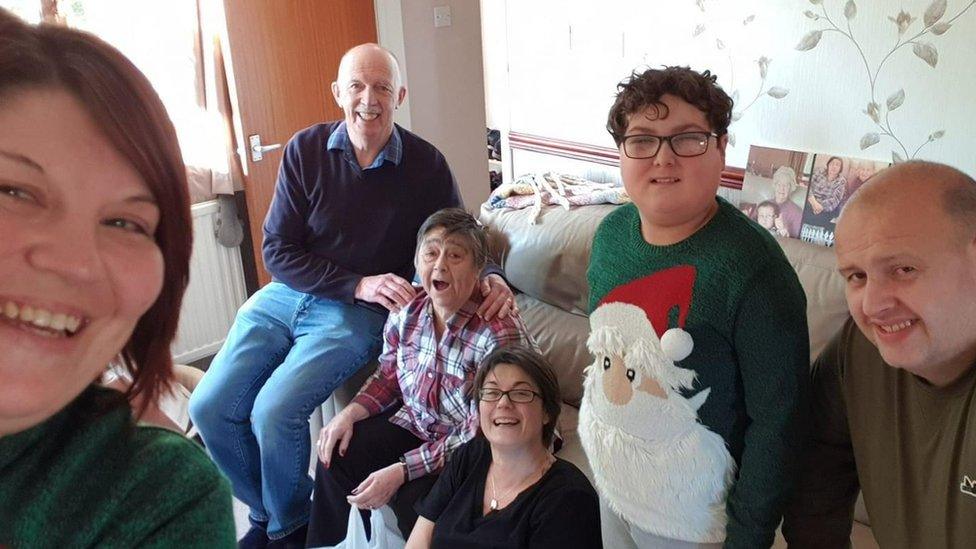
Family times with Janice aren't possible at the moment
Kate, from south Wales, said she fears her mother will no longer recognise her after months apart.
Diagnosed with Alzheimer's disease four years ago, 71-year-old Janice was admitted to hospital a few weeks before the lockdown for help with medication.
The family accompanied her on admission and would visit every day, helping her to eat and wash, bringing in her familiar shower gel, hand cream and music to trigger memories and make her feel comfortable.
But then "we were completely cut off", Kate said.
"For somebody with dementia that has huge repercussions."
They had to wait nine weeks before being offered a video call with their mum, after an iPad was donated to the ward.
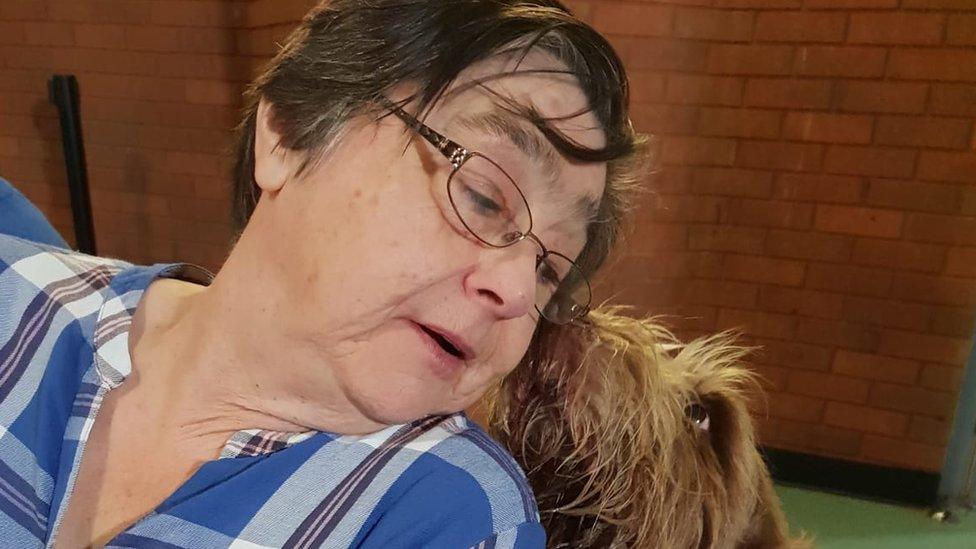
Janice was admitted to hospital a few weeks before lockdown
Kate said the change she noticed in Janice's condition was "distressing".
"The worry is if we're not in touch, will it be more difficult for her to recognise us and feel comfortable in the house when she comes home?
"It makes you feel really anxious and really concerned that nobody seems to be thinking about the bigger picture and putting a strategy in place."
At the moment it's just 'it's not safe, end of story'
"Even if they said, 'right the R number would need to be this or we would need such and such to be in place to allow visiting' - then at least that would give us some reassurance that we're aiming for something.
"It would be something to hold on to, some light at the end of the tunnel. But at the moment it's just 'it's not safe, end of story'."
The wife of another hospital patient in south Wales with dementia - who wished to remain anonymous - said she had been preparing to visit her husband when lockdown happened, describing the situation since then as "like a bereavement".
"The ward was locked with immediate effect meaning I couldn't say goodbye," she said.
Despite having power of attorney over his health and welfare, she says she is "not being consulted or listened to".
"He has definitely deteriorated a lot since lockdown. Dementia can change so quickly and you lose so much."
Sue Phelps, country director for Alzheimer's Society Cymru, said the current situation could lead to "increased isolation, anxiety and unnecessary cognitive decline" for patients with dementia.
"The most frustrating thing for carers or loved ones is not being able to share their insight. They are the ones who know the person best, they can articulate for that person and make sure they are getting the support they are familiar with."
Concerns have also been raised for patients who have difficulties communicating for other reasons, including those for whom English is not their first language.
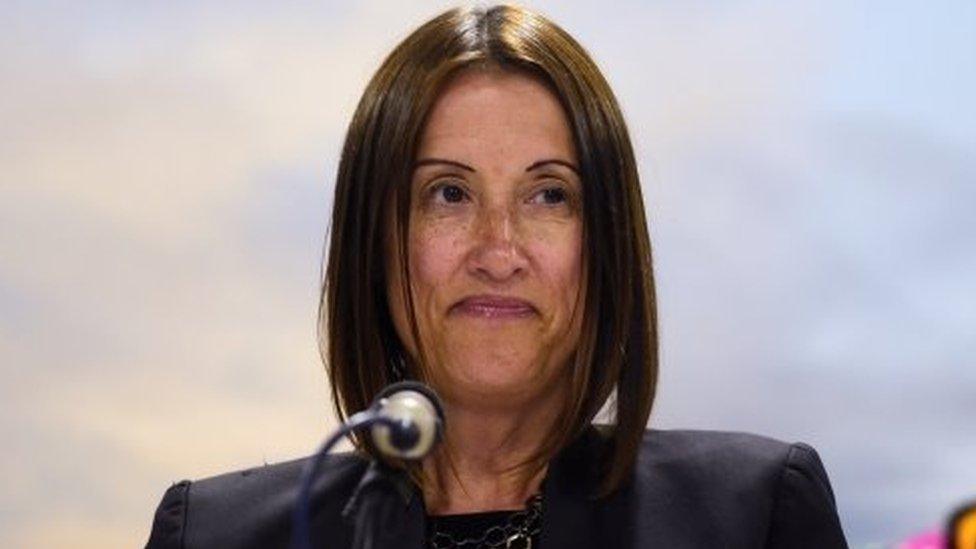
Jane Dodds said language issues had also been raised with the party
Jane Dodds, Welsh Liberal Democrats leader, said she wanted to see a relaxation of the rules, with hospitals considering whether to allow a family member to accompany patients on admission or visit them on a "case by case basis".
Recalling her own experience of seeing her mother revert to only being able to speak Welsh at the end of her life because of dementia, she said it was "something particularly for Wales to think about".
She also said the party had been contacted by the family of an elderly man of Asian heritage who were distraught at not being able to accompany him into hospital as he could not understand English.
"We do understand totally the situation at the moment with Covid-19 and how difficult it is for medical staff to keep everybody safe. But we're asking that they look at every case and consider, where there are people with communication problems, whether they can take somebody in with them."
The Welsh Government said exceptions were already in place to enable people to visit people with mental health issues, as well as dementia, a learning disability or autism in hospital.
"It is entirely appropriate for people with specific needs to be accompanied to hospital for an appointment if it would be detrimental to their care if they were unsupported," a spokesman said.
"In all such instances, agreement should be sought in advance from the nurse in charge of the area."
- Published5 June 2020
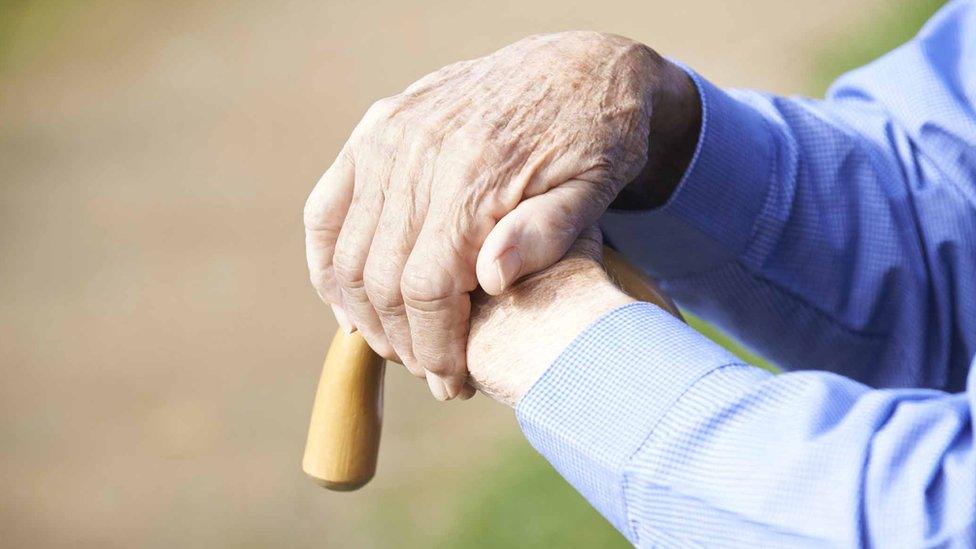
- Published17 May 2020
